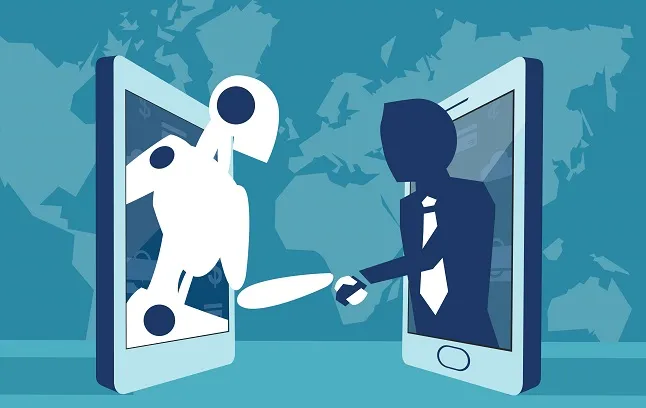In today’s fast-paced digital economy, technical support plays a critical role in maintaining customer satisfaction and business continuity. However, traditional support systems—relying heavily on human agents, scripted responses, and manual troubleshooting—struggle to keep up with increasing demand, complex queries, and customer expectations for instant solutions.
Enter Generative AI: a powerful innovation that is reshaping technical support by delivering context-aware, dynamic, and personalized responses. Unlike rule-based chatbots, Generative AI can understand queries, generate human-like answers, and adapt to new situations—making it a game-changer for businesses.
In this article, we’ll explore the business case for adopting generative AI in technical support and highlight key use cases across industries.

What is Generative AI in Technical Support?
Generative AI refers to AI models (such as GPT-4, Claude, and LLaMA) trained on massive datasets that can:
- Generate text, code, or knowledge-based answers.
- Adapt to new problems through context.
- Automate resolution workflows in real-time.
Applied to technical support, Generative AI enables businesses to move from reactive helpdesks to proactive, intelligent support systems.
Business Case for Generative AI in Technical Support
1. Improved Customer Satisfaction
Customers expect fast, accurate, and personalized support. Generative AI reduces wait times, offers relevant solutions, and improves first-contact resolution rates.
👉 Impact: Better customer loyalty and reduced churn.
2. Cost Reduction
Hiring, training, and retaining human support agents is costly. Generative AI automates repetitive queries, reducing workload and cutting operational expenses.
👉 Impact: Lower support costs without compromising service quality.
3. Scalability
Generative AI scales effortlessly to handle thousands of queries simultaneously, ensuring 24/7 support even during peak demand.
👉 Impact: Business continuity without hiring large teams.
4. Knowledge Management
AI continuously learns from support tickets, FAQs, manuals, and forums—creating a self-updating knowledge base that improves over time.
👉 Impact: Consistency and accuracy across all customer interactions.
5. Multilingual Support
Generative AI provides real-time translations, enabling businesses to serve global customers without language barriers.
👉 Impact: Expanded global reach and inclusivity.
6. Proactive Problem Solving
Beyond reactive answers, Generative AI can analyze system logs, detect anomalies, and suggest preventive actions before issues escalate.
👉 Impact: Reduced downtime and higher operational efficiency.
Use Cases of Generative AI in Technical Support
1. AI-Powered Helpdesk Assistants
Generative AI chatbots act as first-line support agents.
- Answer FAQs dynamically.
- Troubleshoot common technical issues.
- Escalate complex cases to humans with context.
Example: A SaaS company uses an AI assistant to resolve 60% of login, billing, and account queries automatically.
2. Automated Troubleshooting Guides
AI generates step-by-step troubleshooting flows tailored to user-specific environments.
- Hardware configuration fixes.
- Software installation guides.
- Network troubleshooting.
Example: An ISP uses AI to guide customers through router setup or Wi-Fi fixes without needing a technician.
3. AI-Augmented Human Agents
Generative AI acts as a copilot for support teams, suggesting real-time responses and resolutions.
- Summarizes customer issues.
- Pulls relevant documentation instantly.
- Drafts accurate replies for agents to review.
Example: A financial services firm reduces average call resolution time by 40% with AI copilots.
4. Ticket Triage and Routing
AI automatically categorizes support tickets and routes them to the right department.
- Network issues → IT support.
- Billing issues → Finance.
- API errors → Development team.
Example: A global enterprise ensures faster resolutions by letting AI sort incoming support emails and tickets.
5. Knowledge Base Generation & Maintenance
Generative AI can build and update support knowledge bases automatically.
- Extracts solutions from past tickets.
- Converts technical manuals into FAQs.
- Creates multilingual knowledge hubs.
Example: A hardware company uses AI to generate troubleshooting content from product manuals.
6. Proactive System Monitoring & Alerts
AI agents analyze logs, performance metrics, and error patterns to predict failures.
- Server monitoring.
- Cloud application downtime alerts.
- Predictive hardware maintenance.
Example: Cloud service providers use AI to flag issues before they impact end users.
7. Voice-Based AI Support
Generative AI integrates into IVR systems for real-time, conversational voice support.
- Personalized, natural-sounding interactions.
- Faster resolutions without human intervention.
Example: Telecom providers offer AI-driven troubleshooting over phone calls.
Real-World Examples
- Zendesk + OpenAI: Enhancing customer support with generative responses.
- Salesforce Einstein GPT: AI copilots for customer service teams.
- IBM Watson: Automating IT helpdesk and enterprise technical support.
- ServiceNow + Generative AI: Smart workflows for large-scale enterprises.
Challenges and Considerations
While powerful, implementing Generative AI for support comes with challenges:
- Data Privacy & Compliance: Financial and healthcare industries require strict data handling.
- Hallucinations in AI: Ensuring generated responses are factually correct.
- Integration Complexity: Legacy IT systems may need upgrades.
- Change Management: Training staff to collaborate effectively with AI copilots.
Future of Generative AI in Technical Support
The next evolution of technical support will be AI-first. Key trends include:
- Agentic AI in Support: AI agents acting autonomously to solve problems without human intervention.
- Digital Twins of IT Systems: AI simulating environments to test fixes before applying them.
- Predictive + Generative Fusion: AI predicting failures and generating solutions proactively.
- Hyper-Personalized Support: Tailored troubleshooting based on each customer’s system setup.
- Voice + AR Support: AI guiding customers through augmented reality instructions in real-time.
Final Thoughts
Generative AI is revolutionizing technical support by making it faster, smarter, and more proactive. Businesses adopting this technology benefit from cost savings, higher customer satisfaction, and scalable operations.
From AI-powered helpdesks to proactive system monitoring, the business case is clear: Generative AI isn’t just a tool for answering questions—it’s a strategic enabler of next-generation customer experience and IT efficiency.
Companies that embrace AI-driven support today will be at the forefront of delivering seamless, always-available, and intelligent customer service tomorrow.

